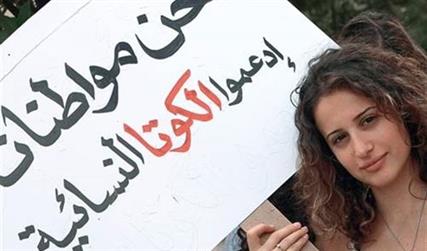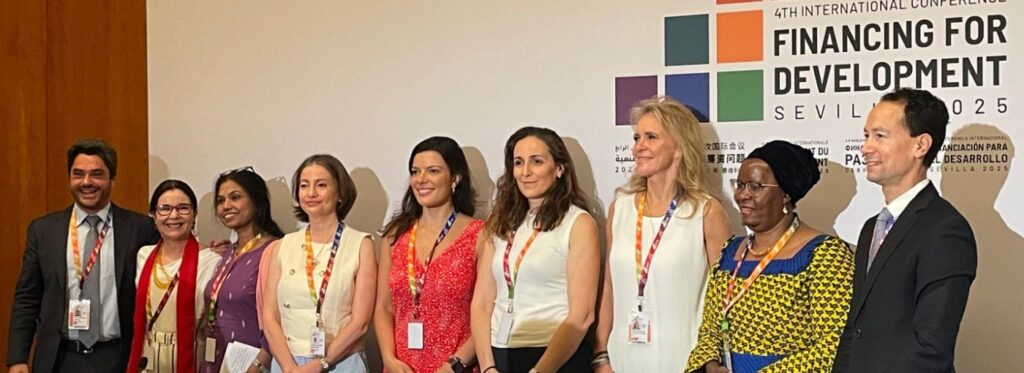Party quotas In Lebanon: The best way to empower women politically
Original publication date: 18/07/2018
(For the original version in Arabic by WE4L partner Maharat follow this link).
Even though 113 women ran for the May 2018 parliamentary elections, only six were elected to parliament. For that reason, the women’s movement in Lebanon believes that the quota system is the best way to ensure better representation of women and thus involve them in policy-making, especially since Article 4 of the Convention on the Elimination of All Forms of Discrimination against Women (CEDAW), ratified by Lebanon, stipulates that the “Adoption by States Parties of temporary special measures aimed at accelerating the de facto equality between men and women shall not be considered discrimination….” The “special measures of positive discrimination” are based on the principle of allocating seats to women in decision-making positions.
What are the different types of quotas?
The Closed Quota: Dedicated seats are reserved for women only, whereby women aren’t allowed to run outside that system.
The Open Quota: Women can choose between running within or outside the women-only quota system.
Minimum Quota: A minimum number of seats is set for women, e.g. at least 20 percent of the total number of seats.
Maximum Quota: A maximum number of seats is set for women and only female candidates who receive the highest number or votes succeed.
Voluntary Quota: Imposed by the different parties on their lists. Here, the possibility of women winning should be considered based on their rankings on the lists, especially under the closed-list proportional electoral system.
What is the optimal quota for Lebanon?
According to women’s rights activist Joumana Merhi, it is preferable in Lebanon to adopt the “minimum quota” system, which allows women to win a higher number of seats than the legal limit, provided that it is outside the restrictions imposed by the sectarian electoral system, as the “maximum quota” does not allow that. Merhi told Maharat News that it is very important to implement voluntary party quotas as “It will contribute to women’s political empowerment and strengthen their partisan role because parties will have to build women’s capacities to compete with other parties for parliamentary seats.”
What laws have been introduced?
One of the most significant proposals is probably the one submitted by the National Commission on the Electoral Law, established in 2005 and later known as the Boutros Commission, as it was headed by the late Minister Fouad Boutros. Article 64 of the draft electoral law submitted by the Commission to the Council of Ministers in 2006 stipulates that “Every list in proportional representation constituencies shall include at least 30% of female members.”
Former Interior Minister Ziad Baroud also submitted a proposal to amend the 2010 municipal elections bill and stressed on the Boutros Commission’s decision to allocate 30 percent quota for either gender in the lists.
The draft electoral law introduced by the Civil Campaign for Electoral Reform in 2011 amended the women’s quota significantly. Article 2 of the proposed law stipulates that “the list must include at least one third of women.” The new mechanism proposed here is “Making sure when organizing the names on the lists that there is at least one woman within each group of three male candidates.”
What is the situation in Arab countries?
Most Arab countries implement the quota system to ensure broad political participation for women. The form of implementation consists of either reserving seats in advance in the legislative and local councils or including provisions in the electoral laws that require lists to determine certain percentages of women. Jordan, for example, has a quota system based on allocating parliamentary seats to women in advance. Article 8 of the 2012 Election Law provides for the allocation of 15 seats for women to which other seats linked to the division of electoral districts may be added.
Iraq has a system based on a minimum quota on electoral lists, with Article 13 of its 2013 electoral law stipulating that the number of female candidates must be no less than 25 percent on the lists of nominated candidates, while the proportion of female representation in parliament must be no less than a quarter of the parliament. It also requires when lists respect the order of women’s names whereby there is one woman after every three men. The Iraqi electoral law not only confirms women’s political representation but also ensures that 25 percent of women win a minimum number of seats.
In Tunisia, quotas were not adopted for seats but for the closed-list proportional representation, and by 50 percent, mixing the names of men and women as follows: man, woman, man, woman. Thus, Tunisia’s recent parliamentary elections gave women 31 percent of parliamentary seats.
Translated by Claudine Farah





